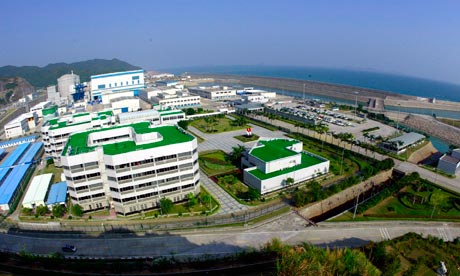Published on Thursday June 16 2011 (AEST)

Regulators give country's 13 reactors the all-clear following checks ordered in wake of Fukushima disaster.
The Daya Bay nuclear power station in Guangdong province, south China. Inspectors have given the country's existing reactors the all-clear. Photograph: Adrian Bradshaw/EPA

The clean bill of health makes it more likely that Beijing will not follow the example of other countries – most recently German, Italy and Japan – who have promised to scale back or abandon nuclear power in the wake of the meltdown at the Fukushima Dai-ichi plant in March.
China has the world's biggest nuclear expansion plans with a goal of more than 100 reactors by 2020, but it suspended permits for new plants after the tsunami disaster in Japan.
That process is now well under way, according to a statement by the deputy environment minister, Li Ganjie, posted on a government website. As well as the completed checks for plants in operation, reviews of facilities under construction would be finished by October, he said.
Few analysts expect China to trim or delay targets that were included in the latest five-year economic plan to meet the power demands of a growing economy, while reducing the country's reliance on greenhouse gas-emitting fuel sources.
Writing in the Science Times, he criticised government advisers for failing to disclose the earthquake risks posed to nuclear power plants and said they had overestimated the availability of uranium in the country and the maturity of fission technology.
"Are we really ready for this kind of giddy speed [of nuclear power development]? I think not – we're seriously underprepared, especially on the safety front," wrote the fellow of the Chinese Academy of Sciences.
Japan, Germany and Switzerland have all move to scale back nuclear power as a result of that disaster. China merely put its programme on hold to assess safety concerns.
In the latest setback for the industry, the Italian electorate voted overwhelmingly against proposals to revive the country's nuclear energy programme.
 Australian Uranium News - Research
Australian Uranium News - Research


Online Stock Market Trading
ReplyDeleteyou have mentioned very useful and profitable message message for us
Thanks
Share Trading